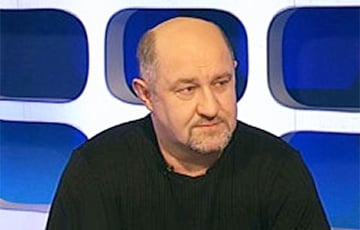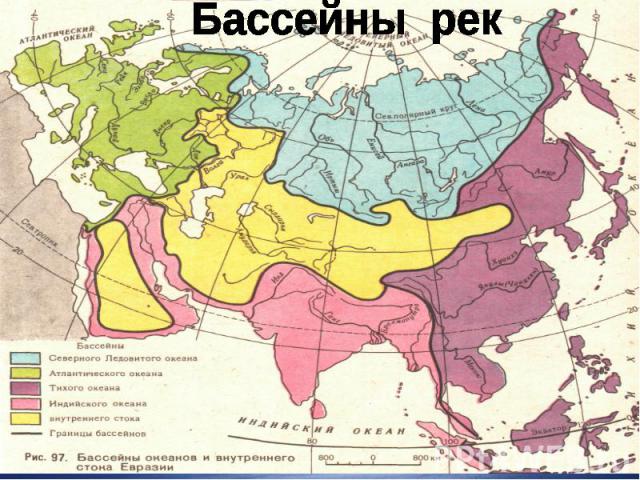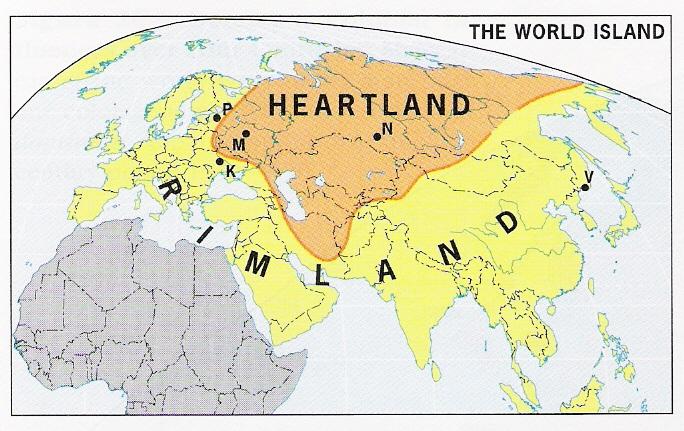Russia-EU: The Battle for Smolensk Gate
- 3.07.2015, 13:42
- 6,809

Can Europe and Belarus stop the new expansion of the imperial Russia?
Zmitser Bandarenka, coordinator of the civil campaign European Belarus, answered questions of the charter97.org.
- Do "geopolitical interests" justify the departure from the moral criteria in relations of the West with dictatorial regimes such as the regime of Lukashenka?
- I agree with the wording "departure from the moral criteria." The European Union currently has a number of serious issues on its agenda: the fight against ISIL, a huge migration of refugees from Africa and the Middle East (60 thousand people arrived in the European Union by sea in three months), the Russian aggression against Ukraine, the threat of default in Greece. All this, of course, overshadowed the problem of suffering of the Belarusian people and the repressions against the Belarusian opposition.
I wouldn't say that a change in the EU policy towards Lukashenka happened due to "geopolitical interests", because it is a way for eurobureaucrats to justify the many years of their lethargic and indecisive policy towards the Belarusian regime. So when European politicians say they meet with Lukashenka because he allegedly "disobeyed Putin", they are, to put it mildly, being sly. Rather, it is about solving current economic problems caused by the Russian aggression in Ukraine.
De facto, the Lukashenka regime is part of the new Eurasian empire, where the main dictator is Vladimir Putin, and the rest are just satraps. Using the Lukashenka regime, the West cooperates with the Russian Empire. It was Mr Putin who gave European officials a negotiating platform on his territory, in Minsk, to solve here the legitimization issues of the captured Crimea and Donbas and to look for opportunities to circumvent by means of contraband the sanctions imposed against each other.
- There is currently a real war in Ukraine, killing thousands of people. Perhaps in this situation not the officials but the military will do the geopolitics?
- When the military engage in geopolitics, it means that the situation has gone too far.
Unfortunately, the West had long believed that the Russian Empire became "vegetarian" in nature and was moving with great strides towards democracy and even became one. For example, it joined the club of democratic countries, which is the G8. But it turned out that this was not the case. Russia is pursuing a revanchist policy using, among others, military means.
European bureaucrats were taken by surprise so the military have already become fully involved. We see the increase in the number of NATO troops' exercises, military forces and equipment are transfered, albeit in small amounts, to the countries of Eastern Europe, and the leadership of the Alliance signed an agreement with the Ministry of Defense of Ukraine on counteracting the Russian information war. A new strategy towards Russia is being developed in the NATO headquarters.
- It means that Europe began to realize the danger of the ideas coming from Russian geopolitical experts, such as Alexander Dugin and other authors of the “Russian World” concept. Do they resemble the ideas of fascism of the 1930s?
- Yes, Alexander Dugin admires Karl Haushofer, German geopolitician, who used Rudolf Hess to influence the policy of Hitler and the top officials of the Third Reich. Dugin regrets that the friendship between Hitler and Stalin lasted so little and they failed to implement the idea of Haushofer to create a continental block Berlin-Moscow-Tokyo, directed against democracies.
Earlier, many in the West thought that Dugin was some kind of "clown" and a dreamer. However if you take his main book 'Foundations of Geopolitics. Geopolitical Future of Russia', it says that its academic adviser is Lieutenant General N.P. Klokotov, instructor of the Academy of the General Staff of the Russian Armed Forces. For 15 years Dugin's textbooks have been studied by all senior officers of the Russian army. In his plans, Dugin, leader of the current geopolitical "neo-Eurasian" movement, leaves no room for Belarusian independence and treats the United States, Britain and the NATO as the principle enemies.
The essence of the "neo-Eurasian" concept - and hence the strategy of today's Russia - is to bring Russia back to being the dominant state in the Eurasian empire. This is also what the Dugin's book section titles tell us: Eurasia above All, Reunion of the Great Russia with the Great Byelorussia, Breaking the Cordon Sanitaire, Decomposition of Ukraine and so on.
It says there flatly that it is necessary to bring back Crimea to Russia, that Ukraine, apart from its western part, as well as the whole of Belarus, must join the Russian Federation, that the very existence of an independent Ukraine on the geopolitical level is a declaration of war to Russia.
If you look at Putin's actions, it becomes clear that he is guided by the concepts of Dugin and the General Staff of the Russian Armed Forces. Most importantly, both Dugin and Putin openly oppose such political system as democracy. Their ideal is “ideocracy”, I.e. the regime where "the chosen” define the dominant ideology in a society and rule unchecked in pursuit of some higher interests.
- Even before the war you said that around the EU there is a kind of "instability arc" that European bureaucrats for some reason prefer to ignore. It has become clear that the whole perimeter of the European Union is on fire burning. What is your forecast for the developments in Belarus which, according to the official propaganda, is an "island of stability"?
- I think that the processes that are taking place within the Eurasian continent are very important both for a small country like Belarus and for the largest geopolitical entity on the planet Earth in terms of GDP, which is the European Union. A classic of geopolitics English academic Halford Mackinder once discovered a geopolitical pattern: periodically, from the depths of the Eurasian continent invasion of Europe begins. And so it was throughout history. Initially, it was the Huns, then Avars, Hungarians, Bulgarians, Turks, Mongols - nomadic peoples who suddenly began a massive invasion from the center of Eurasia. Through the steppe, which starts from the Gobi Desert and stretches across Eurasia to Hungary and the Alps, huge masses of nomads on horses and camels very quickly captured large areas and fundamentally affected the fate of the whole Europe. Muscovy and later the Russian Empire became the heir of the Mongol Empire.
Mackinder argued that if a demographic growth suddenly begins in some areas in the center of Eurasia that experience water and food shortages, then there begins a kind of "volcanic eruption". Main civilizations, according to Mackinder, such as European peninsula, Indian subcontinent, and China are situated in favorable climatic zones with sufficient water supply. The fourth area is the Middle East. Although there is a shortage of water, it has access to five seas and it created great oasis civilizations of Egypt and Babylon. So the people who inhabited the center of Eurasia periodically invaded the mainland coastal areas - where there were powerful and rich civilizations: European, Indian, Chinese, Arabic, located in the basins of the Atlantic, Pacific and Indian oceans.
But according to Mackinder, the key to world history was the Heartland - or "middle gland". This is an area with rivers of inland basin and the Arctic Ocean basin. This region, which Mr Mackinder called the "geographical pivot of history", unites today 12 countries, including Russia. In his later works, the Briton excluded Siberia from the Heartland as the sparsely populated region.
If you look at the development of the "inner basin" countries for the last half-century, in most of them there is a population explosion of unprecedented magnitude. For example, since 1960 the population of Iran, Tajikistan, Uzbekistan, and Afghanistan has increased 4 times. That of Azerbaijan and Turkmenistan - 3 times, Kazakhstan - almost 2 times. Russia's population has grown during this time by 25 million, primarily at the cost of the population of Muslim republics.
It turns out that we are witnessing a global phenomenon the reasons of which do not depend on the desires of politicians - in the European Union, in Russia and Belarus. It should be noted that for the past 55 years the population of Ukraine, Belarus, Lithuania, Romania, Bulgaria and Hungary has remained the same.
- So the Europe will be 'captured by nomads'?
- Today we are dealing with a different level of economic and technological development, but the laws of geopolitics are still the same. According to various estimates, 14 - 20 million migrant workers, mostly from Central Asia and the Caucasus, could not find work in their own countries and flocked to Russia. In Moscow and the Moscow region you can see even with the naked eye how radically the ethnic composition of the population has changed over the last 10 years.
The eruption of the Heartland has already begun. The first victim of this phenomenon was the Soviet Union, when the communist authorities were not able to solve the problem of millions of people in the Muslim republics. The idea of "turning" the northern rivers to Central Asia was a failed attempt to solve the problem of dry land irrigation, creation of new jobs and acceptable living conditions in this region. The war in Afghanistan as a way of breaking through the corridor to the Indian Ocean was also an attempt to solve the problem of population explosion in Central Asia.
Today, the Russian reaction to the influx of migrants from the Caucasus and Central Asia is reflected in the growth of nationalist sentiment and in the creation of radical extremist organizations. What is Putin going to do with this phenomenon? He has two options: either to hold economic, technological and political modernization of Russia based on the Western model, or redirect the energy of millions of migrants and nationalists to the war with Europe.
And we see that Chechens, Ingush, Ossetians, "Cossacks", Dagestanis - representatives of the Russian regions where there was a population explosion - are now fighting in Donbas. At the same time Putin sends to war "hotheads" from extremist nationalist organizations, which have emerged to counter migration.
I just want to stress that the residents of Asian and Caucasian republics cannot be regarded as better or worse - it's just a completely different civilization. Today, we are witnessing Russia changing from predominantly European-Asian civilization to more and more classical Asiatic tyranny, that very “ideocracy” that Alexander Dugin is dreaming about.
- What is the future of Belarus amid these geopolitical changes?
- Belarus is already part of the Eurasian empire. It is present even in the name of the association, of which it is a member - the Eurasian Economic Union. Yes, Belarus has always had a fairly favorable geopolitical position, thanks to which even the Lukashenka regime proved resilient. It is on the crossroads of the main trade routes - from north to south and from east to west. The geopolitical essence of Belarus - as well as the Polatsk Principality and the Grand Duchy of Lithuania - is control of the so-called Smolensk Gate, the territory between the rivers of Western Dvina and Dnieper. I would say that the geopolitical symbol of Belarus is coat of arms of Mahiliou: guard at the "gate", above which you can see the 'Pursuit' (“Pahonya”)coat of arms. It is necessary to give up the dangerous illusion that Belarus is the center of Europe. We have always been, are and will be the last frontier of Europe.
Invasion from the Heartland into Europe took place in three main ways. The first way - through Iran and Asia Minor to the Balkans. The second way was through Black Sea steppes. The third one - through the gates of Smolensk. We know from history that once the Russian Empire crossed the border of the Dnieper, its next "stop" was the Carpathians and the Vistula, or even the Elbe and Danube.
The EU and US military still remember it. Therefore, there is a hope that Belarus will not become a new, aggressive Eurasian empire outpost where attacks on the Baltic countries, Poland and the destruction of Ukraine will originate.
- We are now in Poland, you studied geopolitics at the Warsaw University. How does the Polish academia view the situation in our region?
- Geopolitics became my passion 15 years ago, but, of course, the two-year study at the University of Warsaw helped me a lot to learn more about the Polish schools of geopolitics.
Because of its geopolitical location and understanding of the Russian Empire essence, Poland occupies the key position. There are several geopolitical centers that mainly explore one topic - development of the Intermarium states - the territory between the Baltic Sea on one side and the Black and the Adriatic seas on the other.
The work of these centers particularly concentrates on exploring the potential of the region and on developing strategy towards Russia. The GDP and population of the Intermarium states exceed the GDP and the population of Russia, especially in its European part. The aggressive stance of Moscow towards Poland is largely due to the fact that Poland, like no other, understands in terms of geopolitics Russia's actions and knows how to resist them.
- And how can you resist them?
- In a very decisive and very quick way. Today, the Intermarium states are militarily much weaker than Russia. This is happening because of the agreements between the NATO and Russia on non-deployment of the Alliance forces and new weapons on the territory of Central and Eastern Europe. After the Russian invasion of Ukraine, the military situation experienced drastic change.
I think that the consequences of the demographic explosion in the Heartland and the new expansion of imperial Russia can be stopped only by placing intermediate-range nuclear missiles in Eastern Europe and engaging in sophisticated information work in the countries of the Eastern Partnership.
We live in a very difficult time. I think that with the help of the United States the European Union will be able to stop the invasion from the Eurasian empire. Then Russia will have to change the vector and deal with the problems of its sparsely populated regions. Russia is not able to develop Siberia without Western technology. It will either have to give it away to China or gradually get modernized and democratized.
When the King of Poland and Grand Duke of Lithuania Stephen Báthory in the 16th century fought off the invasion of Ivan the Terrible and threw his horde beyond the Smolensk gate, the Muscovy was forced to move towards the Urals and Siberia. The expansion to the West was stopped for 75 years. History repeats itself.











